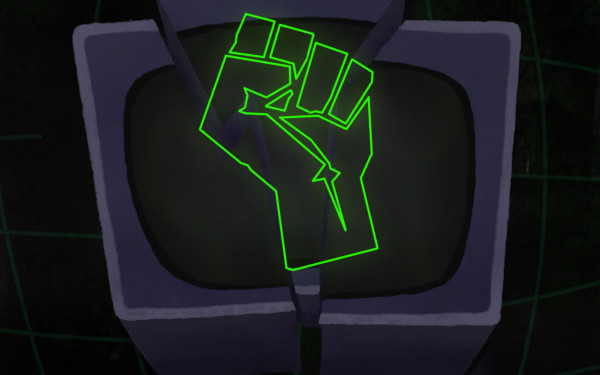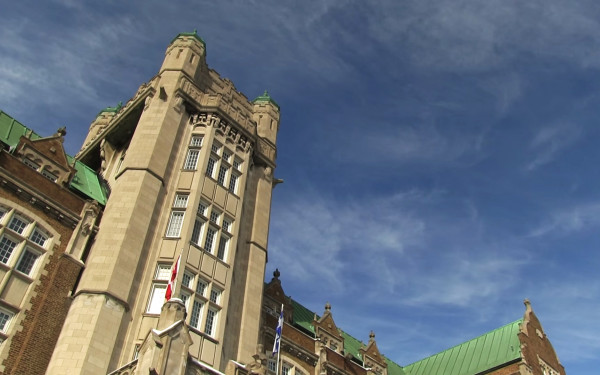A FPJQ Congress 2016 Recap
The Fédération professionnelle des journalistes du Québec congress took place from Nov. 18 to 20 in St. Sauveur, Québec. This year’s theme was investigative journalism, but the event also featured conferences about the importance of women in media and the coverage of sexual assault scandal allegations at Université Laval.
Here’s a recap of a selection of the conferences.
Mots et maux du terrorisme moderne (Words and Impacts of Modern Terrorism)
Panel: Gabrielle Duchaine (La Presse), Michel Moutot (a war correspondent who covers terrorism at Agence France-Presse), Fabrice de Pierrebourg (author), Benjamin Ducol (a researcher specializing in radicalization)
The panel first discussed the difficulties of covering terrorism around the world. Moutot, who covers terrorism in Europe for AFP, identified access to sources as the main problem.
Duchaine, La Presse’s beat reporter on radicalisation issues in Quebec, explained that the problem was similar in the province. “It’s a polarizing issue” she explained.
She added that the difference here lies between the openness of French authorities and authorities in Quebec. “Families of radicalized youths [in Quebec] are distrustful with journalists,” she said.
Meanwhile, Moutot explained his tactic of talking with the families called “the coffee machine” technique.
“During breaks in trials [of radicalized individuals] I go to the coffee machine,” Moutot said. “The first day [families and friends] don’t want to talk to you, but the following days, they usually open up and start talking.”
The panel then spoke about how radicalized youths use the internet. Pierrebourg, speaking on Skype from Iraq, where he is covering the Mosul offensive, said that terrorist groups control the web very well.
To that effect, Moutot added, “They know how to use it to spread misinformation.”
In 2015, for example, jihadist Omar Diaby pretended to be dead on social media and then re-appeared in 2016 for an interview with French TV channel France 2.
On the Facebook accounts of to-be jihadists, Benjamin Ducol, the researcher, often saw pictures of deceased and murdered children in Syria. “There’s no radicalization if there’s no indignation,” he explained.
Moutot also discussed the difficulty of covering the war in Syria: most of the coverage comes from four or five women based in Beirut, Lebanon. The AFP journalist explained that the women speak on the phone with Syrian journalists on the ground all day, but it’s a sad job for both.
“One day the [Syrian] guy does not answer anymore because he’s dead,” he said.
Sources: quand faut-il accorder l’anonymat (Sources: When to Give Anonymity)
Panel: Katia Gagnon (Head of Investigations at La Presse), Daniel Leblanc (Reporter at The Globe and Mail), Jean-Philippe Pineault (Director of information at The Canadian Press), Isabelle Richer (Host, Radio-Canada)
Gagnon discussed the risk of using anonymous sources in articles, telling the journalists in the audience that giving anonymity is the last option. “The [person] needs to have valid reasons [to remain anonymous],” she explained, after describing a La Presse article in which she believed the journalist should not have given anonymity.
Journalists should be aware that the person requesting anonymity may be doing it to spin the article. Two sources are needed at the very least, she added.
Leblanc, best known for being the journalist that revealed the Canadian Sponsorship Scandal in the Liberal Party and his anonymous source MaChouette, said that the basis of journalism is speaking to people “informally.”
“The best usage of anonymous sources is to ask good questions,” explained Leblanc. Sources that simply speculate are not good.
“I don’t want a source to tell me ‘Justin Trudeau is dumb,’” said Leblanc. “Tell me why you believe he is dumb.”
Leblanc added it was also important to be considerate of the risk the source is taking by speaking to a journalist—this is why journalists have to be honest with their sources.
Pineault, director of information at The Canadian Press, echoed Gagnon’s comments and explained that he was sometimes disappointed with journalists because they gave anonymity to people that did not deserve it. “I’m not always happy with what’s published with anonymous sources,” said Pineault.
Nonetheless, if the anonymous source talks, it’s the journalist’s job to protect him or her, the panel agreed. “I have sources in the police that would never talk if they had the littlest doubt that they might be revealed,” explained Richer.
Nourrir le chien de garde (Feeding the Guard Dog)
Panel: Isabelle Hachey (Investigative Journalist at La Presse), Martin Bourassa (Editor-in-Chief at Courrier de Saint-Hyacinthe), Claudine Blais (Producer of Enquête)
The panel featured journalists from major organizations, and Bourassa, editor-in-chief of the oldest French newspaper in America, the Courrier de Saint-Hyacinthe.
The paper has won the prize for the best weekly newspaper in Canada nine times since 1990 and in 2000, it won a Judith-Jasmin prize for reporting awarded to the best works of journalism in Quebec.
Bourassa, the paper’s editor since 2004, explained how it’s possible for small newspapers to produce great journalism on a low budget.
Access-to-information requests, he told the crowd, are not investigative journalism themselves. He insisted that investigative journalism does not stop after you’ve receive the first documents. If the documents are not the totality of what was asked, the journalist should appeal until there’s no other option available.
The three agreed that investigative journalism is “not a nine-to-five job.” Hachey talked about one of her techniques: investigation by hypothesis.
“You start with an hypothesis and you try to prove it,” she said. Asked by an audience member if a collaboration between rivals La Presse and Radio-Canada would be possible during an investigation, Blais told the audience that it wasn’t impossible.
However, Hachey added, “On the ground, it would be impossible.”
Numérique: la revanche des jeunes (Digital: The Revenge of the Youth)
Panel: Simon Coutu (Reporter at VICE Québec), Crystelle Crépeau (Director of Digital Writing at Radio-Canada), Valérie Duhaime (Content Director for Digital Platforms at Urbania/Balle Courbe)
Coutu and Duhaime, two former Radio-Canada employees talked with Crépeau––former editor-in-chief of Chatelaine magazine––about the place of youths in journalism.
According to Duhaime, 77 per cent of the Urbania audience is between the age of 18 and 34––what the panel determined to be the age of millennials.
She explained that Crépeau’s project for Radio-Canada, Prochaine génération (Next Generation), is intended for that age group; the project is still in its first phase.
Crépeau wants to re-think a new way to inform millennials on a different platform, and she wants to talk about subjects that concern their generation.
Coutu believes that it’s one of VICE’s strengths: reports on underreported subjects. “I think we were the only organization that went to Anticosti [island] and actually spoke to residents,” he pointed out.
The three panelists discussed the progress made in addressing millennials over the last few years. When asked why it took so long for Radio-Canada to start thinking of building a new platform for that generation, Crépeau explained that “it’s hard to steer a liner.”
To that issue Coutu, the VICE Québec reporter, stated that the reason may be that “there’s not enough young bosses.”
However, Radio-Canada has made progress, said Crépeau. For example, the corporation launched Corde sensible (Strike a Cord), a new web-series hosted by Marie-Eve Tremblay, in which Tremblay addresses uncomfortable subjects (for example, looking for an apartment on the Internet with an Arabic name).
Duhaime added that, “Those who refuse to go forward are on the wrong side of progress.”
Dans les coulisses des Panama Papers (Behind the Scenes of the Panama Papers)
Interview with Emilia Diaz-Struck (Head Researcher at International Consortium of Investigative Journalists) by Gillian Findlay (Host of Fifth Estate on CBC)
In an hour-long interview, Diaz-Struck, a professor of journalism at the Central University of Venezuela, discussed her responsibilities as a head researcher of the International Consortium of Investigative Journalists (ICIJ), as well as the challenges of handling the enormity of the Panama Papers—2.6 terabytes of documents to be exact.
The documents were leaked by an anonymous source to two journalists working for Süddeutsche Zeitung, a German newspaper. Realising that they wouldn’t be able to sort through all the documents by themselves, the journalists contacted the ICIJ to collaborate.
“We needed to make sense of that mess,” Diaz-Struck told Gillian and the audience. The ICIJ now has 11.5 million documents, including more than 4,800,000 emails. The lone-wolf idea of investigative journalism today has become the wolfpack—involving 370 journalists from around the world.
“We want journalists that want to collaborate,” said Diaz-Struck. There are six ICIJ journalists in Canada, including Radio-Canada’s Frederic Zalac and former Journal de Montréal investigative reporter Andrew McIntosh.
The first question Diaz-Struck asks journalists is if they are willing to collaborate. “We want journalists that will put their egos aside,” she said.
Diaz-Struck told the audience that she did not contact Ken Silverstein––the investigative reporter who revealed the alleged wrongdoings of Mossack Fonseca, the Panamanian law firm at the center of the Panama Papers.
In a VICE magazine article, 18 months before the ICIJ officially released the information, Silverstein explained that he knew that Süddeutsche Zeitung had received the documents, but he did not know “it was a leak of this size.”
Major newspapers such as The New York Times and The Washington Post were not a part of the ICIJ before the release of the Panama Papers, but have since joined. Diaz-Struck, though, was quick to remind Findlay, host of CBC’s Fifth Estate, that “the key is the journalists” and not necessarily the organization.
Diaz-Struck also revealed that the ICIJ had relevant documents about the widespread corruption in FIFA and the Petrobras corruption scandal in Brazil, but held back the release of any documents until they were prepared to release the Panama Papers.
Since the leaks, the number of journalists has grown to around 500, said Diaz-Struck. The journalists are not all paid by the ICIJ, but the organization has 12 staff members. The ICIJ is not funded by any government.
Protection des sources: les techniques de l’heure pour sécuriser ses communications (Protecting sources: latest techniques to protect your conversations)
Panel: Tristan Péloquin (La Presse), Nael Shiab (Data Journalist at L’Actualité)
In a short talk, Péloquin and Shiab reviewed the various devices used to secure communications between journalists and sources.
Péloquin has noticed more and more journalists using encryption techniques today. For Shiab, the turning-point was the Snowden leaks. He explained that he became more conscious of the importance of protecting his communication after learning of the methods Snowden used to speak to journalist Glenn Greenwald.
One of those devices is the app Signal, which Snowden himself recommends.
The app allows journalists and sources to communicate using encrypted text messaging. Users can also call themselves securely. Two words appear on the screen of the users before the call. The person who receives a call reads the first name for the caller who answers by reading the second.
The journalists also suggested using Tor Browser which enables users to have a different IP address associated to their browsing. Usually, the user’s IP address will be the one of the Wi-Fi address he is connected to.
Finally, the panelists discussed the use of PGP (“Pretty Good Privacy”) keys, a safe technology to share documents.
Users own a public and private PGP key. The public key can be known by anyone. Some journalists will write their PGP key in their Twitter bio, for example, in case an individual wants to share confidential documents.
The shared documents can only be accessed by using the private PGP key known only by the journalist.

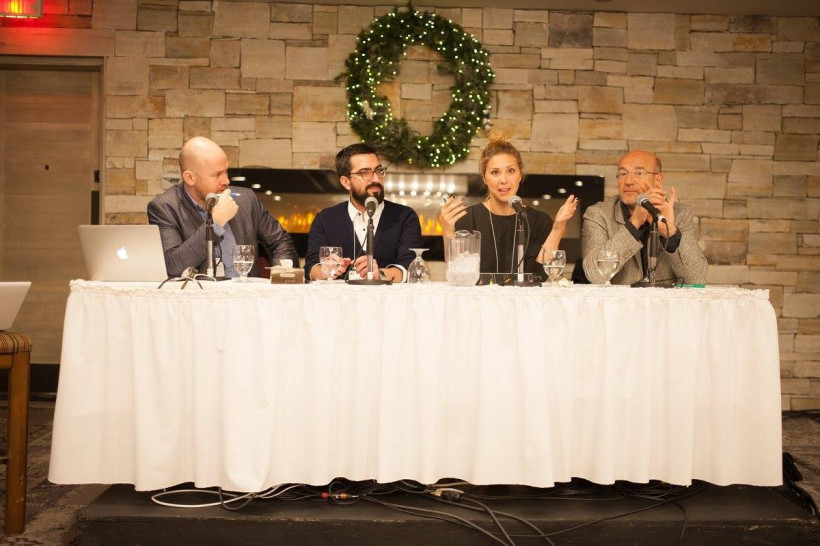
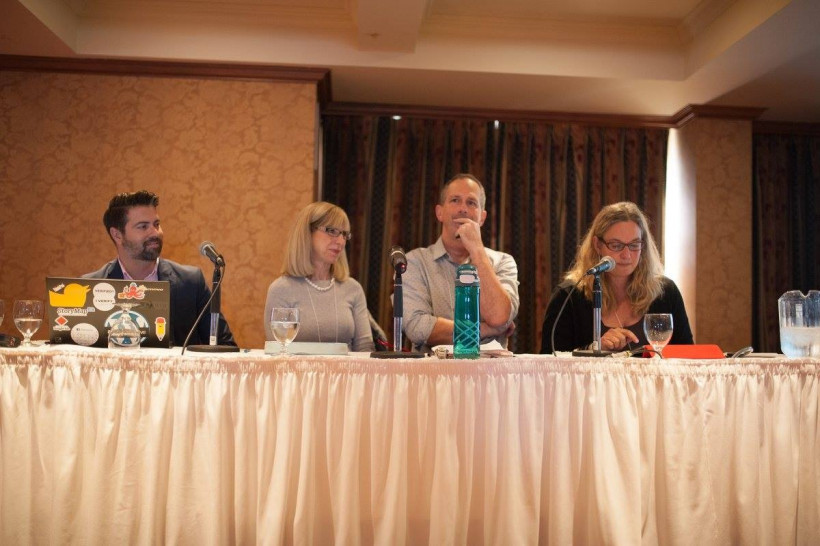
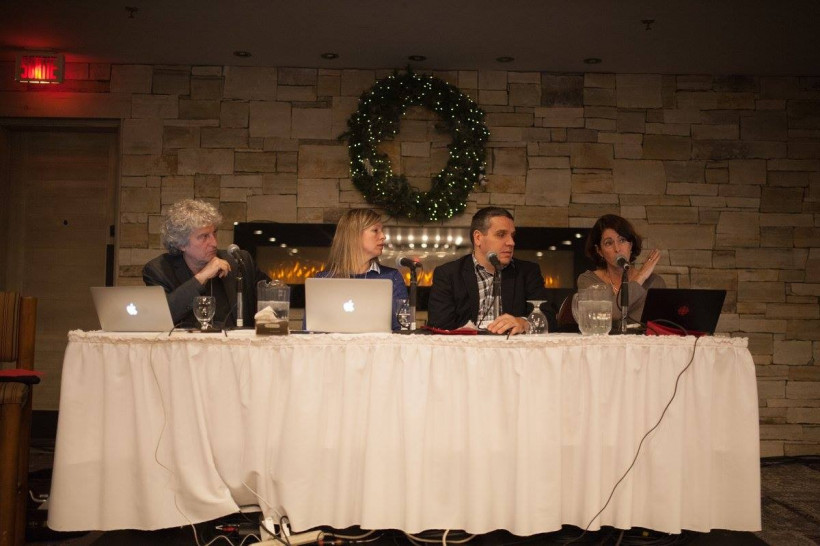
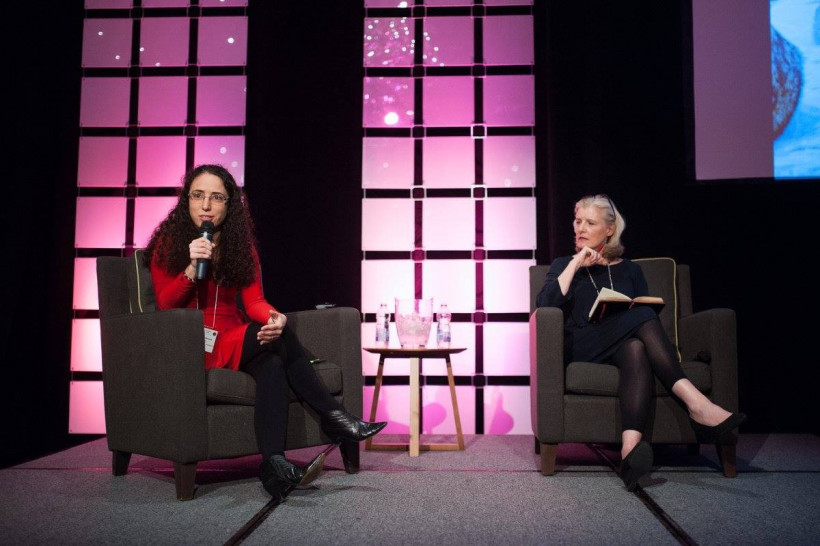
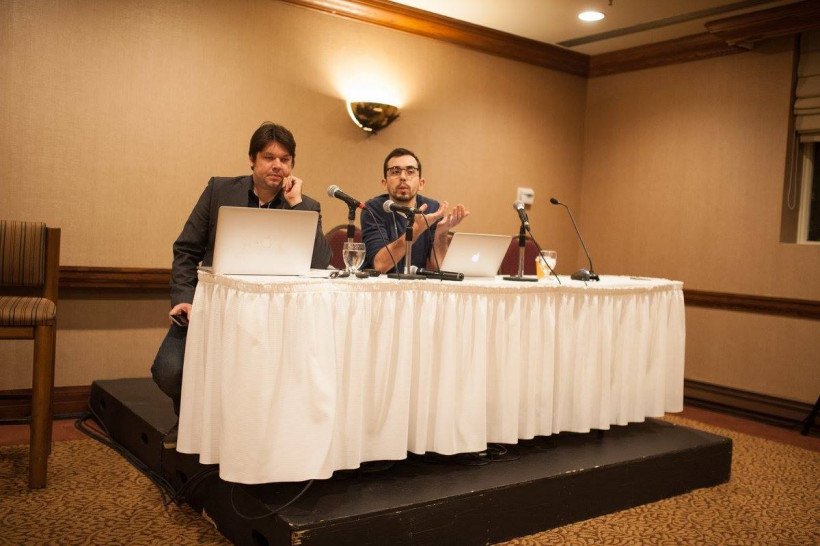


_600_375_90_s_c1.jpg)

